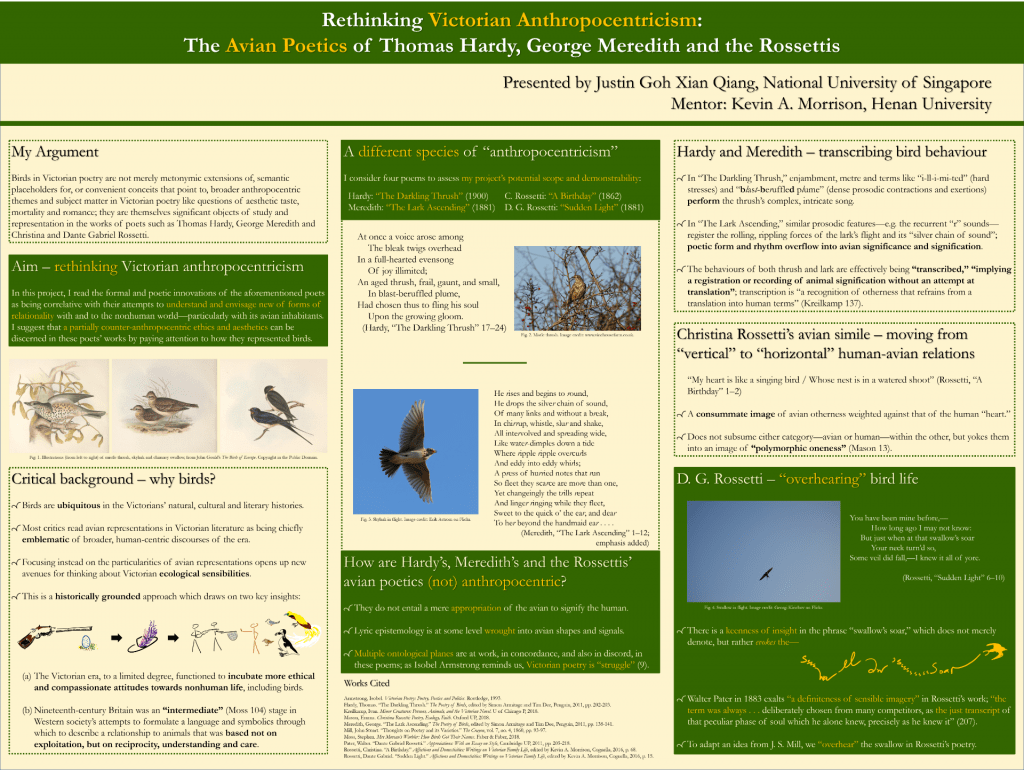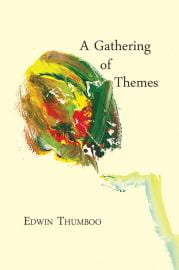Poetry Shortlist | Singapore Literature Prize 2020
We are pleased to announce that Professor Edwin Thumboo’s poetry collection, A Gathering of Themes (Ethos Books, 2019), has been shortlisted for the Singapore Literature Prize 2020!
Professor Thumboo is one of Singapore’s foremost pioneer poets. After more than a decade since his last anthology, Still Travelling (Ethos Books, 2008), he brings to us a new work that features 109 poems, covering a wide range of topics including love, religion, history and nationhood.
In time his words fly. ‘A special moment’. We wish Professor Thumboo all the best!
The virtual awards ceremony is on 27 August 2020, 8pm. You can tune in to the ceremony on Facebook!
Find out more about the shortlisted titles here:
https://bookcouncil.sg/singapore-literature-prize/shortlists/category/poetry-English
Get A Gathering of Themes here: https://www.ethosbooks.com.sg/products/a-gathering-of-themes
Read about the collection here: https://www.straitstimes.com/lifestyle/arts/edwin-thumboo-releases-new-poetry-collection-at-age-85
NUS awards Edwin Thumboo Prize 2020 to four pre-university students for outstanding literary work
The Department of English Language and Literature at the National University of Singapore (NUS) Faculty of Arts and Social Sciences will be awarding the Edwin Thumboo Prize 2020 to four pre-university students for their outstanding literary work.

Named after one of Singapore’s most prominent poets and scholars, the Edwin Thumboo Prize, aims to promote excellence in the study of Literature at the pre-university level by recognising outstanding literary works by A-level and International Baccalaureate (IB) students of English Literature in Singapore. It is administered by the Department with support from the Ministry of Education (MOE). The Prize, established in 2019, is funded by generous donors, including patrons of the arts and former winners of the Angus Ross Prize.
The winner of the Edwin Thumboo Prize 2020 is Ms Loh Su Jean from Raffles Institution, who will receive a monetary award of $200.
Her essay on Shakespeare evinced a thorough and dedicated pursuit of scholarly knowledge and individual insight. The panel praised her exceptional work, which embodied both intellectual capacity and depth. Ms Loh demonstrated similar poise and discernment during her interview when she had to analyse and compare two unseen poems – one of which was by a Singapore poet. She navigated poetic complexity with immense conviction, rigour and detail, and presented an insightful reading of the poems.
When informed of the results, Ms Loh said, “I owe this to each and every one of my literature teachers, who showed me how to look at the world with inspiration and discover its beauty in the written word. To my mother, who read to me before I could: thank you for filling my childhood with books, libraries, and a love for stories. None of this would be possible without you.”
Three Merit Prizes will also be awarded to Ms Chu Shuai Wu Freyja from Dunman High School, Mr Ng Zheng Yang from Anglo Chinese Junior College, and Ms Silvia Suseno from Nanyang Junior College. They will receive monetary awards of $100 each.
The winners of the Edwin Thumboo Prize were selected through a rigorous selection process. In 2019, government pre-university institutions were invited to nominate one candidate each. The competition attracted entries from 13 institutions.
Each institution had to submit recommendations for their nominated candidates. The candidates were also required to submit a piece of academic writing on a literary text or topic.
Candidates were assessed by a selection panel, comprising representatives from NUS and MOE, as well as former prize-winners. The selection panel for this year’s Prize included Dr Susan Ang from the Department and the 1997 Angus Ross Prize Winner, Mr Aaron Maniam. In identifying the winners, the selection panel looked particularly for an excellent grasp of the written word, and a sensitivity to its significance as a creative endeavour.
Associate Professor Michelle Lazar, Head of the NUS Department of English Language and Literature, was impressed with the quality of the entries and expressed the Department’s gratitude to the donors who initiated and donated to the Edwin Thumboo Prize. She said, “We are very encouraged by the number of nominations received this year, the diverse topics of the submissions – ranging from Shakespeare to Bob Dylan – and the sophistication of writing and analysis of many of the entries. We are grateful to our partners in education from MOE and the pre-university institutions for working with us to promote the study of and love for literature.”
About Professor Edwin Thumboo
Emeritus Professor Edwin Thumboo is one of Singapore’s pioneering poets. An accomplished literary practitioner and critic, he dedicated his life to the composition and study of English Literature. His work is studied in schools, both locally and abroad, and featured in public places in Singapore. At NUS, Professor Thumboo had served as Head of the Department of English Language and Literature, Dean of the Faculty of Arts and Social Sciences, and Director of the NUS Centre for the Arts. He has also received numerous awards, including the Book Award for Poetry in English (1978, 1980 and 1994), Southeast Asia Write Award (1979), The Cultural Medallion (March 1980), ASEAN Cultural and Communication Award for Literature (August 1987), Public Service Star (August 1991), the Meritorious Service Medal (2006), and Distinguished Service Award (2008).
North American Victorian Studies Association (NAVSA) Annual Conference 2019 Undergraduate Research Event

A mid-term overseas excursion involving almost sixty hours of travel can be no mere flight of fancy. From 17 to 19 October 2019, I was very privileged to be at the North American Victorian Studies Association’s (NAVSA) annual conference in Columbus, Ohio. I was there with the support of the English Language and Literature department at the National University of Singapore (NUS) and under the mentorship of Professor Kevin A. Morrison from Henan University, whom I met during a module on Victorian Literature and Culture that he had conducted as a Visiting Professor to NUS. Dr Morrison had nominated me to present a project at NAVSA 2019’s Undergraduate Research Event. Months of research following my acceptance into the programme, which found me stealing time from my vacation and coursework to read anything from Victorian lyric poetry to nineteenth-century animal welfare brochures, eventually yielded the theme of this project: “Rethinking Victorian Anthropocentricism: The Avian Poetics of Thomas Hardy, George Meredith and the Rossettis.”
Part of the research programme for undergraduates at NAVSA 2019 included a workshop. This was an opportunity for us to pitch our projects to one another, to refine our arguments against our peers’ evaluation. We also shared insights and experiences related to the challenges of preparing for the upcoming presentation. We spoke at length, for instance, about the difficulty of handling the specific genre we were assigned to work with: the academic poster. To compress reams of research into a mere five hundred words or so plus a handful of images was infinitely more demanding than a five thousand-word paper might have been. Yet the prevailing realisation was that such limitation could only be the impetus for radical creativity. Brevity boasts its own poetry. What was truly inspiring in the work of my peers was its sheer felicity and acumen: everybody was bold, open and in earnest about what they were sharing. I was deeply impressed, for example, by Hannah Calderazzo’s presentation titled “Unfeminine Legacies from Wilkie Collins’s The Woman in White to Victoria Cross’s Six Chapters of a Man’s Life,” which skilfully and imaginatively unpacked the transactions between nineteenth-century sensation fiction and classical tragedy. Hannah was extremely well-read and fluent in her knowledge of the period. Like every other participant at the conference, she was deeply in possession of her own niche, and proudly, unapologetically so.

In many ways it was the people who made the occasion. This was especially true during the undergraduate poster session, held on the third and final day of the conference. Our posters were arranged along corridors adjacent to seminar rooms in the Hilton Columbus Downtown where the conference was being hosted. Interested participants could approach individual presenters to talk about their projects. Here, I was quite overwhelmed by the encouraging feedback I received. Dr Maha Jafri from Sewanee, for example, summoned such tremendous energy to engage with my readings of Hardy, Meredith and the Rossettis; she also shared valuable information about where I might look up archives related to the work of Meredith (a writer whose work, we both agreed, suffers its own somewhat maligned, critically underappreciated dogmatic brilliance). I also got to test my interpretations of poems by Christina and Dante Gabriel Rossetti against the expertise of Professor Elizabeth K. Helsinger, whose work I had read when conducting my own research. Part of the difficulty of establishing an ecological reading of the Rossettis concerns how one might evaluate the theological preoccupations of their work. In simple terms, it’s difficult to say precisely that when, for instance, Christina Rossetti in “A Birthday” writes “My heart is like a singing bird / Whose nest is in a water’d shoot,” she is being as aware of the bird itself as she is with its symbolic properties. It was therefore immensely motivating to hear Professor Helsinger say, in agreement with my own intuitions, that, “Yes, I do think she sees the bird.” The poster session resonated, in sum, both effectively and affectively; it built my confidence and helped me sharpen my own critical perceptions.
I’ll finish this post with a thought that returns me home. Many of my fondest memories of NAVSA 2019, strangely enough, don’t come from Columbus at all. These include: the enthusiastic and unconditional support of my family; endless matrices of email correspondence with Dr Morrison on the details of the project, which he tirelessly and meticulously guided me through; Professor Lazar and Professor Sankaran’s warm encouragement before my trip; Dr Susan Ang’s illuminating discussions on Hopkins, Keats and Shelley; Ms Angeline Ang’s kindness and patience in guiding me through the administrative work of requesting conference funds; expedient emails from CLB containing articles requested via DDS that were essential in helping me define and refine my project; Dr Jennifer McDonell’s expert feedback on my ideas and poster design; Dr Michael Hollington’s hugely supportive response to my queries about his own work on Dickens and to my project; talks with Stasha Wong on environmentalism, animals and various things ecological; philosophical gymnastics with Tan Wei Lin on dialogism and Derrida; discussions with Joycelyn Lee Yuet Zhen on Dante Gabriel Rossetti’s “Sudden Light,” phonemes and the IPA chart. It’s this community of people back to whom I must trace the roots of the sweetness of my experience of NAVSA 2019, and so I do, with great wonder and gratitude.
Submitted by 3rd-year undergraduate Justin Goh.


